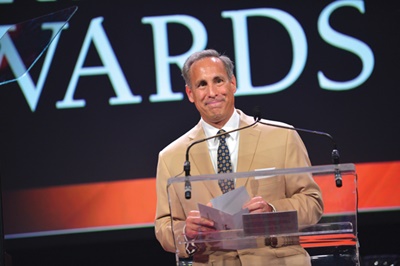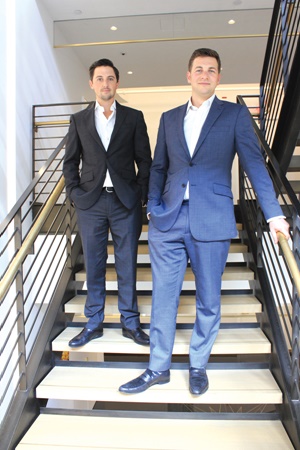Nolan Partners recently conducted a search for the head of officiating for the U.S. Tennis Association, and on paper the placement seemed routine: Cull a list of domestic like-minded candidates from within tennis to quickly fill the job.
Forty-five days later, Nolan delivered a far different-looking short list to the client, featuring candidates hailing from five countries, some of whom had no specific industry experience. Eventually, the hire was made from the sport of cricket.
The approach stemmed from what Paul Nolan, chief executive officer of Nolan Partners, calls getting under the hood of a client in order to match a company’s culture with executive skills.
“The business of sports has become more mature,” Nolan said. “In the past, it was kind of one-dimensional in the way they searched and appointed organizational leaders. They are far more willing to be imaginative now. There is competitive advantage in it.”
At Korn Ferry, Liz Boardman’s current search to find the right fit for the athletic director’s job at Fairfield University has meant multiple visits to the school, dinners and lunches with the school president and multiple meetings with the former athletic director, the associate athletic director and other executives familiar with the job.
“We’ve met with 30 different people and have been on campus three different times,” said Boardman, senior client partner in Korn Ferry’s global sports practice. “It is multiple reps for this. We really embed ourselves with the client and make it so we become part of a team. I have worked with clients that weren’t as interested, and the searches don’t go as well.”
 |
Len Perna of Turnkey Sports & Entertainment
Photo: MARC BRYAN-BROWN |
Both searches reflect the changing approach in how executive recruiters fill jobs at teams, leagues, colleges and other sports properties. More than ever, the emphasis is concentrated on the importance of defining and matching corporate culture to qualified candidates. Firms must now provide deeper searches that include candidates from outside the sports business and are mindful of diversity, an issue that continues to challenge the industry. The focus on culture also has created more demands on search firms but also greater opportunity as clients increasingly look for more expertise in attracting top talent.
“The value proposition for executive search has proven to be strong, so that’s what has attracted so many firms,” said Len Perna, president and CEO of Turnkey Sports & Entertainment, which has been in the search business for 21 years. “Ten or 15 years ago, there was this feeling that you could post a job and the world would beat a path to your door. That’s proved to be false. There are certain jobs you can post and ones you can’t because you have to — have to — get them right. Posting a job doesn’t get you the best of the best. It gets you the best of the people who are looking for a job.”
In many instances, even for the highest level of searches, finding candidates who fit the job description can be the easiest aspect of an executive search. Matching the candidate with the company’s culture can be far more complex.
 |
Joe Becher and Asher Simons of CAA
Photo: CAA |
“One of the things we are finding is that our clients are asking us to think outside the box,” said Joe Becher, who along with Asher Simons, runs CAA’s human capital division. “They want to see more people from diverse backgrounds. There is the continued focus in the sports industry on analytics, and it is getting smarter and being held to higher standards. Private equity and venture capital demand more rigor. They are much more open-minded.”
Methods to measure culture and ensure a good executive placement vary, driven mainly by the client. Some demand detailed quantitative testing in their recruiting, meaning search firms might use a variety of methods such as IQ testing and the use of industrial psychologists to measure personality profiles. Other firms rely on the interviewing process to gauge the best fit.
“You know what to listen for and what questions to ask, and it is a skill of listening and understanding,” said Scott Carmichael, founder and CEO of Prodigy Sports.
Orlando Magic CEO Alex Martins used search firms in the team’s recent hiring of general manager John Hammond. Martins has also used executive recruiters for senior-level business jobs.
“The No. 1 priority is finding the right individual that is the right culture fit,” Martins said. “You look at the depth and the magnitude of the searches. The one thing they bring is the data and intelligence gathering. What are their relationships, and how are they able to secure a strong pool of candidates in a confidential manner, so that you know you can rely on them to bring you a depth of candidates you wouldn’t do on your own.”
But finding the proper match between candidate and company culture can be an inexact science. One search firm executive recounts a search in which a candidate moved from a high-level sales job at a large New York property to take a job at a small agency. The motivation for the job change was more about leaving a job where the executive was unhappy than it was about embracing a new opportunity.
 |
Scott Carmichael of Prodigy Sports
Photo: PRODIGY SPORTS |
“It was about getting out from underneath one extreme culture and going into a startup,” said the search executive, who requested anonymity because he didn’t want to talk on the record about his firm’s involvement in an unsuccessful placement. “It was less than a year when he landed back with another big firm.”
Many search firms also create their own research templates to measure culture. For example, Heidrick & Struggles has developed its Leadership Signature product to measure executive leadership skills. Spencer Stuart also has developed its own cultural assessment questionnaire that is administered to candidates.
But nothing is more important than the executive search firm’s ability to get access to their client to gauge the company culture.
“There are key culture diagnostics that are crucial and the need for quantitative data is critical, but it has to be supplemented with a boots-on-the-ground mentality,” said Jamie Crittenberger, co-leader of Spencer Stuart’s sports practice. “That is the only way that a client feels a sense of partnership.”
No longer is executive recruitment a purely transactional process where a search firm is simply selling an empty seat in an organization.
“We move far beyond that,” said Dany Berghoff, principal at RSR Partners. “We spend an extraordinary amount of time learning about our client. It is the only way to do the search well.”
The following are results of the Turnkey Sports Poll taken in June. The survey covered more than 2,000 senior-level sports industry executives spanning professional and college sports.
While working in sports, have you been contacted by an executive recruiter about a job in the industry?
If forced to make a choice when hiring a candidate, which of the following would be the more important factor?
| Perfect fit with your organization's culture |
74% |
| Perfect skill set for the job |
24% |
| Not sure / No response |
2% |
From the perspective of a hiring manager, what is the biggest benefit to using an executive search firm to fill a position?
| Exposure / access to a wide network of candidates |
47% |
| Professional evaluation / vetting of the candidates |
28% |
| Time commitment |
15% |
| Confidentiality of the process |
5% |
| Negotiation with the final candidate(s) |
1% |
| Not sure / No response |
4% |
Source: Turnkey Sports & Entertainment in conjunction with SportsBusiness Journal. Turnkey Intelligence specializes in research, measurement and lead generation for brands and properties. Visit www.turnkeyse.com.
According to Berghoff, past performance of a candidate isn’t always a clear indicator of future success. It is just as vital to understand the motivation of the candidate, which he said is best measured through interviews.
“The easiest conversation is the competency part,” Berghoff said. “What is paramount is digging in and assessing for potential. Think of it like a scout operates in football. It is not about the obvious.”
As soon as Chuck Cain lands a search for his Harvard Group International firm, he calls his travel agent. While placements in the financial industry and other sectors rely on a battery of quantitative testing of candidates, Cain bases a sports executive search effort on interviewing the client as much as the candidate.
“We get on a plane and spend a day with the company,” said Cain, who is managing partner at the firm. “We request to meet everyone that touches the role. For a CMO search, we want to talk to sales, corporate partnerships and finance, and on the team ops side we talk to the GM and the coach and find out how they interact. It is much more about interviewing. Teams don’t do much testing.”
Search firms increasingly are pressured to match company culture with the candidate faster than in years past.
Last year, Tracy Murdoch O’Such, managing partner at Diversified Search, handled two sponsorship searches for the World Surf League with the expectation that she present an initial slate of candidates within two weeks. A few years ago, O’Such would have had about six weeks.
“The industry shift is that clients are looking for faster but equally high-quality solutions,” O’Such said. “Speed to solution is key, but at the same time it has to have quality. That wasn’t necessarily the case. Gone are the days of six-month searches. The stakes are so much higher and the money is so much bigger. It’s not just ‘Hey, what is your brother-in-law doing?’”






